The term “old friend of the Chinese people” has a sentimental, almost innocent ring, but the Chinese Communist Party regards it as a job description. It is a label used to describe foreigners looked on favorably by the CCP. But it also carries obligations — “old friends” are expected to be sympathetic and further the interests of the Party. “China will never forget their old friends,” said President Xi Jinping, when he met Henry Kissinger, the most famous holder of that title for his supposed pragmatism toward Beijing, shortly before his death.
Perhaps the most notorious “old friend” was Edgar Snow, the American journalist, who was given privileged access to Mao Zedong and his fellow revolutionaries in the 1930s, rewarding them with flattering portraits. In this respect it is not unrelated to the term “useful idiots,” which emerged during the Cold War with the Soviet Union and was used to describe those Westerners who allowed themselves to become dupes of communism.
The question of whether Tim Walz, the Democrats’ vice presidential nominee, can be regarded as an “old friend” is one of the larger unanswered questions of the US election, and much about his engagement with China remains unclear. There is no doubt that his experience in China is highly unusual among top US politicians, though his campaign now claims his number of visits was “closer to fifteen” and not the thirty he had originally claimed. During the October 1 vice presidential debate, he also said he “misspoke” when he said he was in Hong Kong during the 1989 Tiananmen Square massacre, en route to a teaching job on the mainland, even though his presence there at that traumatic time has for years been a key part of his China narrative.
Whatever the precise number of visits, it is the nature of those visits that so distinguishes him. If Kamala Harris is elected president, Walz will become the first vice president to have lived in China since George H.W. Bush, who served as the top US diplomat in Beijing in the 1970s. But Walz’s China was very different from that of Bush, who lived the relatively cloistered life of a diplomat; Walz was a teacher in provincial China before going on to organize multiple student study tours. And although vice presidents typically don’t have a lot of influence on American foreign policy, Harris had little record in international affairs before becoming vice president and has never been to China, suggesting that Waltz could have a larger say.
Tiananmen Tim, Wuhan Walz, Totalitarian Tim, the Great Walz of China are just some of the names thrown at Walz by his Republican critics. “Communist China is very happy with @GovTimWalz as Kamala’s VP pick,” Richard Grenell, who served as ambassador to Germany and acting national intelligence director in the Trump administration, said on X. The Harris-Walz campaign retorted that “Republicans are twisting basic facts.” James Singer, a campaign spokesperson, said Walz has long stood up to the CCP and “fought for human rights and democracy, and always put American jobs and manufacturing first.” That said, it has not been an issue the Democrats are keen to talk about, as if they cannot quite make up their minds whether in an era of bipartisan hawkishness toward Beijing, Walz’s China experience is an asset or a liability.
Walz first went to China in 1989 as a twenty-five-year-old recent graduate to teach English and American history at a high school in the city of Foshan in Guangdong Province, next to Hong Kong. The placement was organized by the World-Teach program, a nonprofit affiliated with Harvard University. Before his debate correction, Walz had claimed a stopover in Hong Kong coincided with the June 4 Tiananmen Square massacre. Many people at the time canceled visits to the mainland, out of revulsion at the killings of pro-democracy protesters, or fear of a wider civil war. Walz said he decided to stick to his plans, later telling a 2014 congressional hearing marking the twenty-fifth anniversary of the massacre, “It was my belief at that time that the diplomacy was going to happen on many levels, certainly people to people, and the opportunity to be in a Chinese high school at that critical time seemed to me to be really important.” It now transpires that he did not leave Nebraska for China until August that year.
At Foshan No. 1 High School, located in one of the city’s oldest neighborhoods, Walz taught four classes a day with about sixty-five students in each class. He was paid around $80 a month, double what the local teachers earned, and with the added luxury of an air-conditioning unit. He was reportedly nicknamed “Fields of China” because of the breadth of his kindness, and there is little doubt that the experience left a deep impression on him. “No matter how long I live, I’ll never be treated that well again,” he told the Star-Herald, a local newspaper, upon his return to Nebraska in 1990. He said going to China had been “one of the best things” he had ever done, but he also said that the Chinese people had been cheated by their government for years. “If they had the proper leadership, there are no limits on what they could accomplish… They are such kind, generous, capable people.”
Walz went on to teach social studies at Alliance High School in western Nebraska, where he met his future wife, Gwen Whipple. They married on June 4, 1994, the anniversary of the Tiananmen massacre, and Walz would later say, “There was no doubt I would remember that date.” Soon after they left with sixty students for a study trip to China, which effectively became their honeymoon. They set up a company called Educational Travel Adventures, through which student trips were organized, and continued to organize summer visits after moving to Mankato, Minnesota, in 1996. The visits took place most summers and Walz learned to speak some Chinese.
Senior Republicans claim this is all rather sinister. Senator Marco Rubio, the top Republican on the Senate Intelligence Committee, says it shows how China “patiently grooms future American leaders.” James Comer, the Republican head of the House Oversight Committee, has suggested that the vice presidential nominee was a target of “elite capture” by the CCP. He has written to the FBI requesting information on Chinese groups that engaged with Walz and suggested that Walz organized a student trip to China in which Beijing picked up the costs. Comer also noted that in 2019, as governor, Walz had keynoted a meeting of the Chinese People’s Association for Friendship with Foreign Countries, a CCP-front organization, and says, “The American people deserve to fully understand how deep Governor Walz’s relationship with China goes.”
Critics have also pointed to conciliatory comments made more recently by Walz. “I don’t fall into the category that China necessarily needs to be an adversarial relationship,” he said in a 2016 interview. “We’re on the same sheet of music, two of the world’s great superpowers, there’s many collaborative things we can do together.” He has spoken of the need for dialogue and cooperation on issues such as trade and climate change. In 2019, as governor of Minnesota, he highlighted how high tariffs were hurting farmers and said then-President Trump needed “to start doing his job and end the trade war with China.”
The Harris campaign has not released information about the funding of his student trips, which took place between 1994 and 2003, but points to his record in supporting human rights in China during his twelve years in the House of Representatives from 2007 to 2019. In 2015, he was part of a rare American delegation to Tibet led by Nancy Pelosi, then the House minority leader. The following year he met the Dalai Lama, Tibet’s exiled spiritual leader and a CCP bête noire, describing the encounter as “life-changing.” He gave strong backing to the Hong Kong Human Rights and Democracy Act, which imposed sanctions on Chinese and Hong Kong officials for human rights abuses during the city’s democracy protests, and met with Joshua Wong, a now-imprisoned student leader of the democracy movement. Earlier he cosponsored a resolution demanding the release of Liu Xiaobo, a Chinese dissident and Nobel laureate. As a member of the Congressional-Executive Commission on China, which focuses on human rights, he criticized China’s crackdown on rights lawyers and religious groups, as well as unfair trade practices.
To say that Walz engaged with CCP-front organizations during his long association with the country is a truism: it would have been impossible not to. Chinese groups that help organize or sponsor visits, whether they are focused on businesspeople, academics or students, could not operate without links to the Party and are part of the CCP’s “united front” apparatus that aims to exert influence and nurture relationships useful to the party — even down to the recruitment of spies. Seeking influence is of course the stuff of all diplomacy, but what distinguishes China’s “united front” efforts is their sheer size and methodical nature, and the frequently clandestine manner in which they operate. This system has been beefed up under Xi, and on the academic front includes phantom (but well-remunerated) “academic conferences” as well as carefully choreographed “study tours.” Their currency is flattery, favors and heaps of window-dressing, but it should have been the job of organizers such as Walz to prepare students with the critical tools to see beyond the CCP’s dog and pony shows.
What of Beijing’s view of Walz? When he became the vice presidential nominee, China’s Foreign Ministry spokesperson Mao Ning avoided commenting, merely calling for “win-win cooperation” with the United States. Chinese state media initially avoided discussing Walz’s experience and stance on China, only later implying that he might advance Beijing’s agenda. “Walz knows more about China than most US politicians and is capable of making more rational and informed decisions on US-China relations,” the China Daily wrote, adding that it hoped he “helps bring sanity” to Washington’s policy toward China. Which suggests the CCP too is still figuring out what his nomination means — and most likely dusting off their files from a certain Foshan school. So far there has been no deployment of the term “old friend of the Chinese people,” but should it be wheeled out, that really would be the time to start worrying.
This article was originally published in The Spectator’s November 2024 World edition.



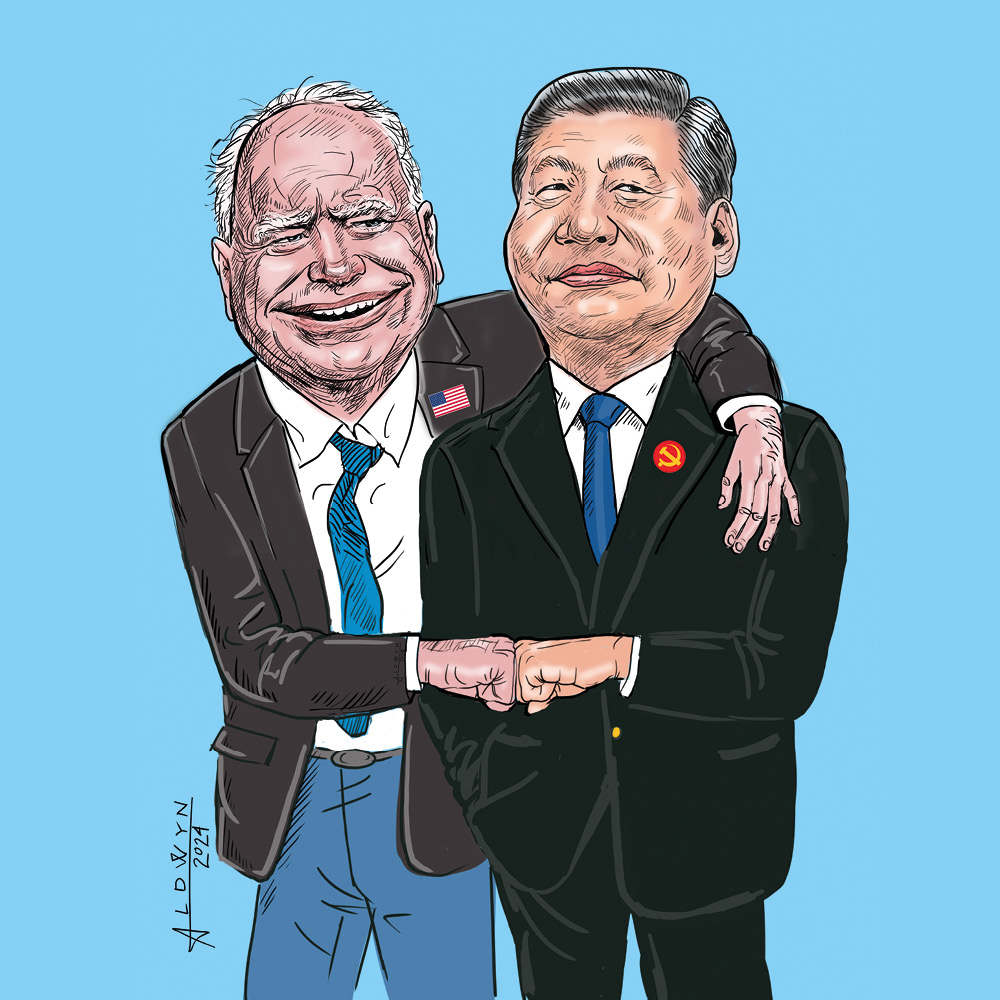






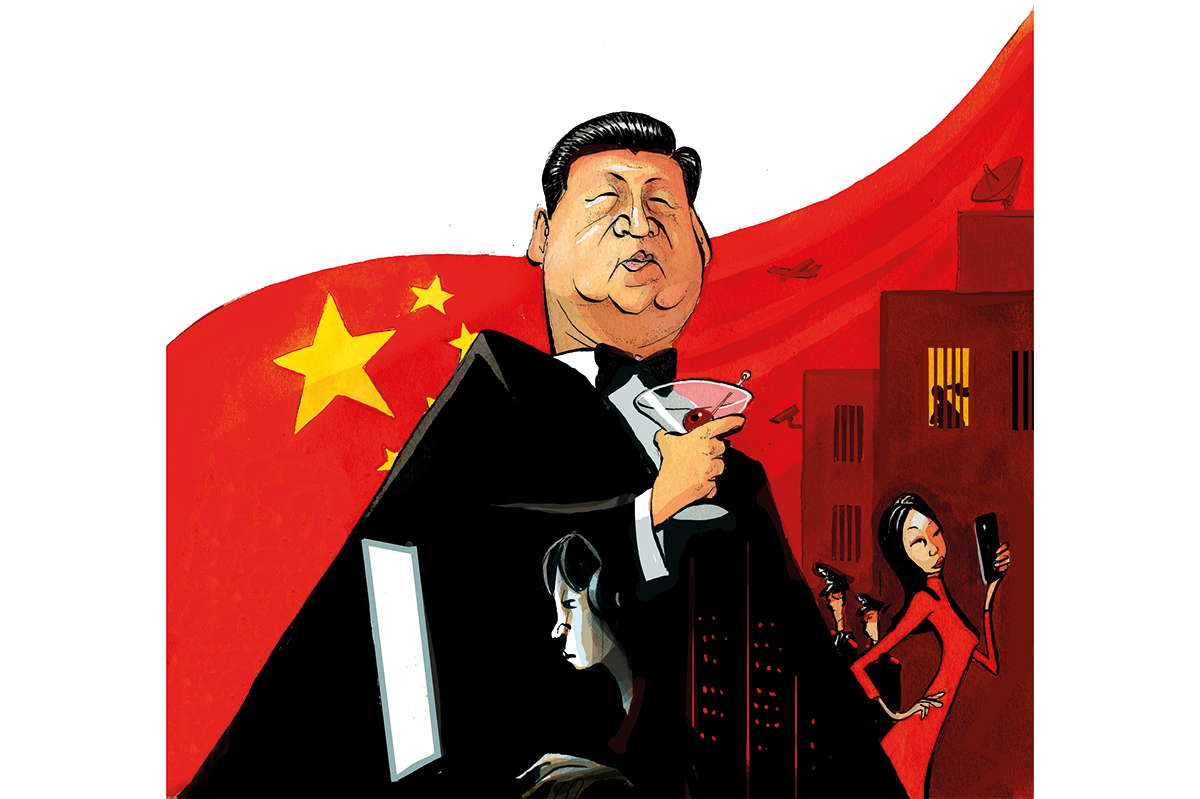

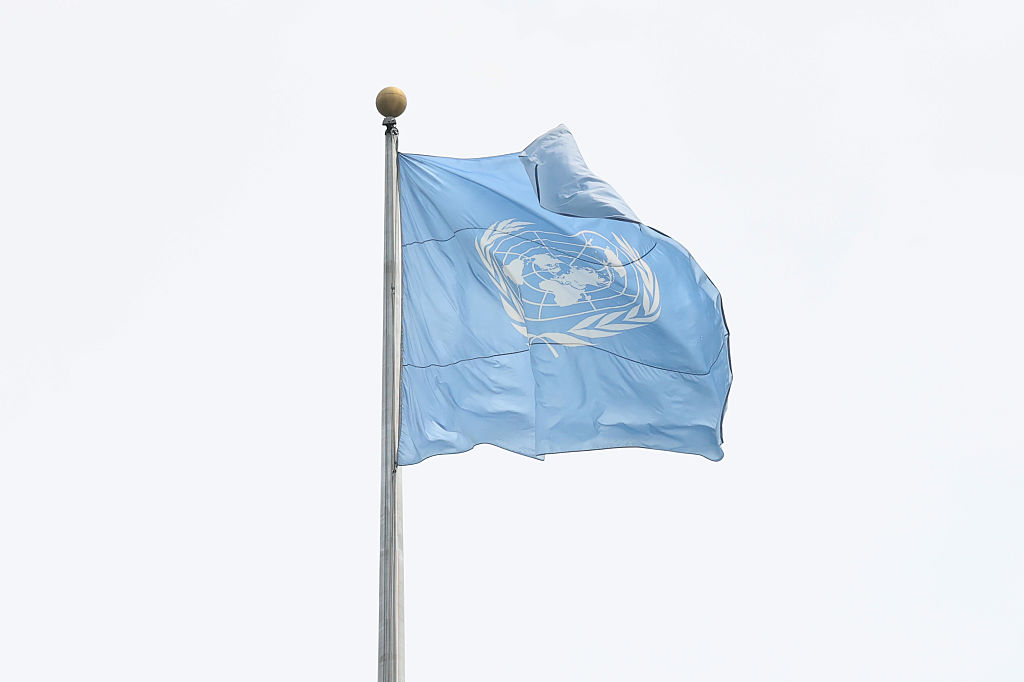
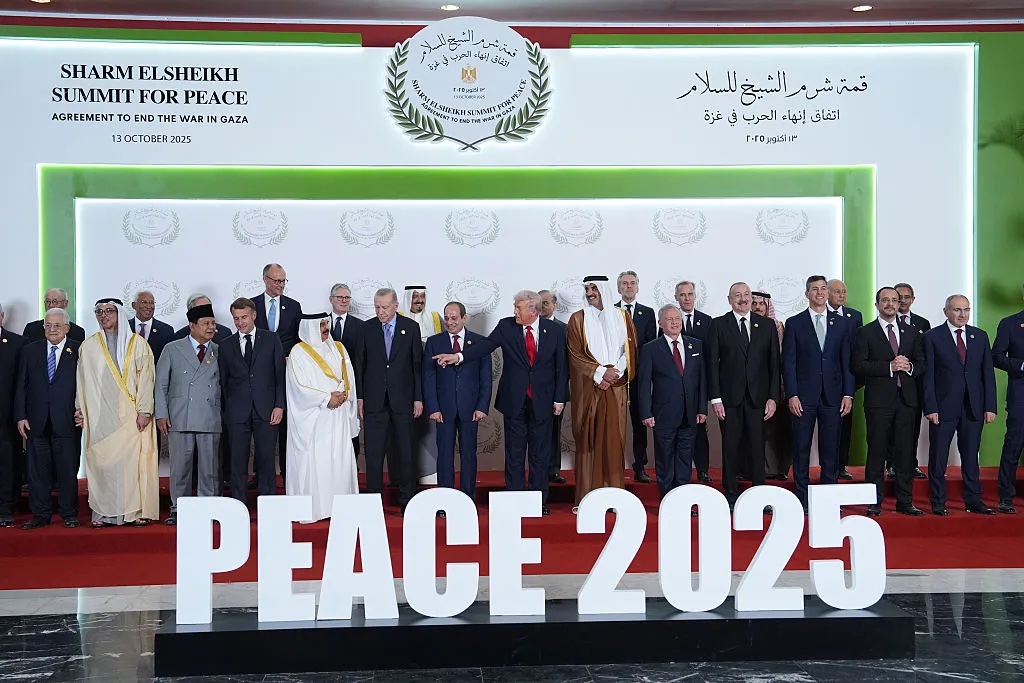

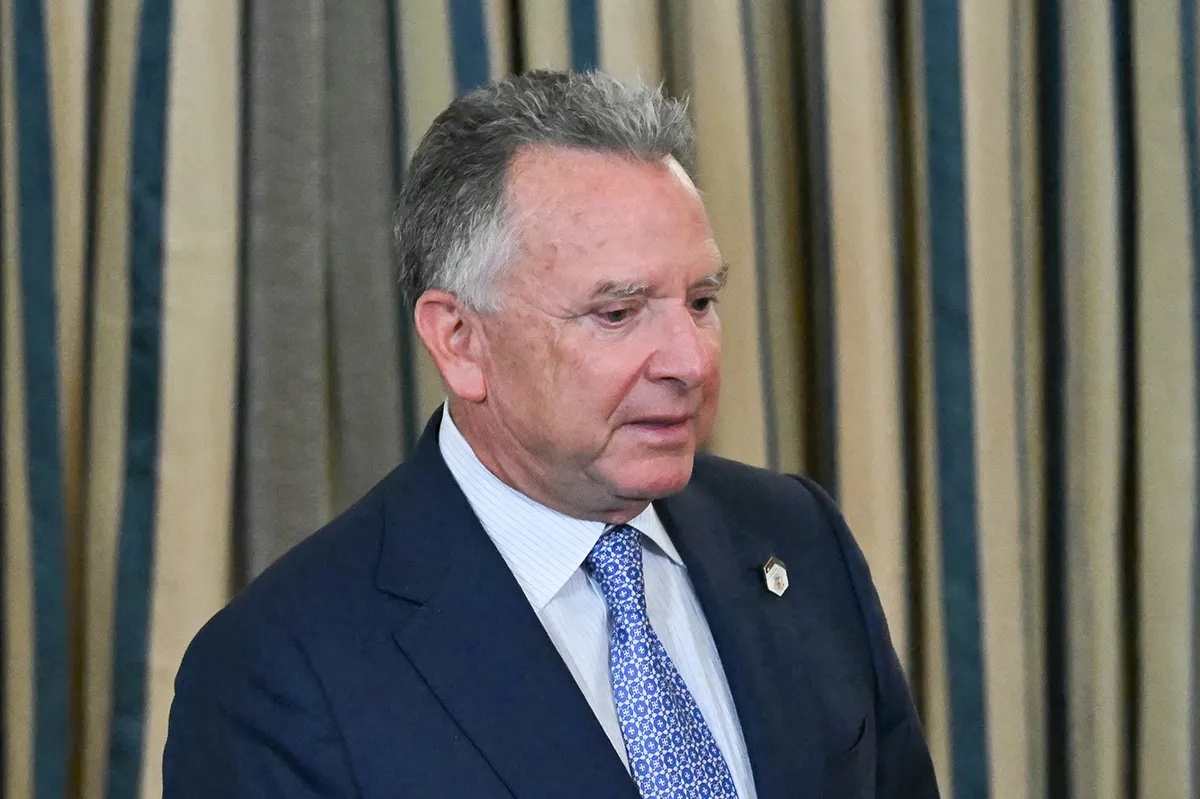







Leave a Reply